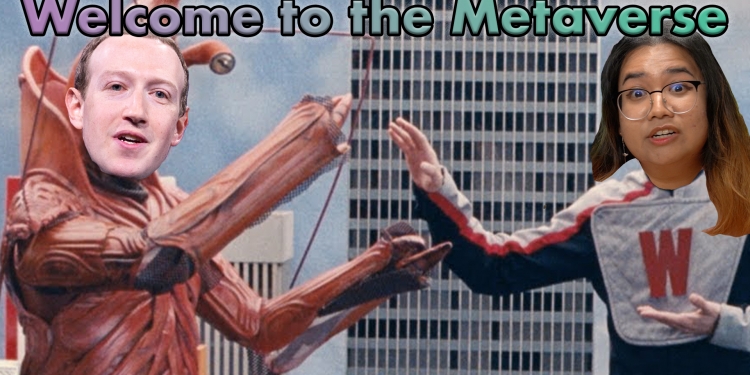The metaverse is… nothing new. Facebook came out with their own metaverse, and with its Meta rebrand, they’re actually just recycling a super old concept. But the question is: Is Facebook also going to recycle the old problems that came with older metaverses as well?
What is the metaverse?
Metaverse is a portmanteau, and blends the two words: meta-a prefix meaning “more comprehensive” or “transcending”, and universe-which is…all of space and time and their contents. The word is associated with entering a virtual reality that includes some form of social connection—whether or not you have VR goggles.
An early version of the metaverse is Second Life—a free and easy-to-use 3D platform launched in 2003. At its peak in 2013, it had about 1 million active users and it was extremely popular. Now, not so much. And there are a lot of problems facing an endless, free-to-use metaverse.
What are the problems that can come with a metaverse?
A huge problem is also how easy it is to do super kinky sex stuff on Second Life. It’s like a sex chat amongst real people—but for your sims. There are age restrictions, but a lot of them seem worryingly unregulated. People also lost interest in Second Life by 2017, seeing a decline to about 800,000 active users… just 4 years after its peak.
But the metaverse obviously didn’t end with the decline of Second Life. With modern technology, it has grown.
You can download VR Chat via Steam on PC. You can even use a mixed reality headset with the gloves if you want the experience to be seamless. But a PC works fine, although not as immersive.
In the application, you’re able to visit multiple worlds created by individual creators who let players access them for free. But that level of access, as cool as it is, can come with the same problems we faced in Second Life.
Additionally, The Verge stated that Meta is eventually going to add things for Horizon Worlds—Meta’s own metaverse. They include features for events and for work rooms. But for now, they aim to just entice people to join the platform before—and I quote—“monetisation is added”.
And especially since I can’t find anything on what Meta plans to do with Horizon Worlds other than to make money as the end goal, how is this metaverse going to be any better than the previous versions?
Will we learn from our past mistakes?
The metaverse has always been there, stemming from our desire to connect with others in a world where we would forget all our worries, deadlines, stresses, and other problems we face in the real world. As borders have started to reopen, I thought that we have no need for the metaverse right now anymore. We can see our friends and family in real life. Why do we need all this?
“Maybe you don’t really need it. But wheelchair-bound people who have partners and friends abroad, they will still need it… people wanna keep connected with everyone. People say why do you need Facebook when you can hang out with family members?… the metaverse is just continuing the tradition of social media,” explained AR and VR creator Cybernerdbaby, who I talked to through VR Chat.
So, the metaverse, it seems like, isn’t going to go away. It’s also going to be ever-changing. The metaverse we know now, the metaverse we knew back then, and the metaverse we will know in the future will not be the same.
Facebook didn’t invent the metaverse or break any mold with it. But I also am excited to see where we will be with more mixed reality headsets being made and with more platforms and infrastructures being built.
We still have a long way to go. But as we get deeper and deeper in, I just hope that we as users, as well as our children, are going to learn from the mistakes of past metaverses.








